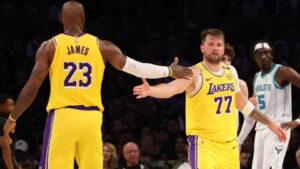
David Gilmour reveals the guitar that made him forget his legendary black Strat and shares his views on guitars.
David Gilmour acknowledged that he has become so attached to his current guitar that he has somewhat forgotten about his legendary black Strat. He argued that guitars are merely “tools” that can be swapped out as needed.
Few instruments are as iconic as the 1969 Fender guitar, originally finished in Sunburst before being repainted black and modified by Gilmour. This guitar made its debut in his hands at the Bath Music Festival in 1970.
In 2019, the guitar was sold at a charity auction for $3,975,000, the highest price ever paid for an electric guitar at that time. However, five years later, Gilmour seems unfazed by its absence, thanks to his new instrument, affectionately named the “Black Cat Strat.” In a recent interview with Guitar Player, he remarked, “I even forget that it’s not the same one I used on all those albums.”
The Black Cat Strat, which features a distinctive sticker on its body, was used to record the opening track of Gilmour’s new solo album, “Luck and Strange,” also titled “Black Cat.”
Regarding his current collection, Gilmour shared, “I have my old beat-up Tele that I’m very fond of. I have a Gretsch Duo Jet that I love and wouldn’t sell. I also have a 1945 Martin D-18 that’s not for sale. But overall, they’re just tools of my trade, and I can replace them if needed.”
“Luck and Strange,” Gilmour’s first solo album in nine years, also became his first to reach No. 1 on Billboard’s Top Album Sales chart.
He mentioned that he initially considered having Rick Rubin produce the album but ultimately chose Charles Andrew instead: “We thought about Rick Rubin and others I know of, but I decided I didn’t want to work with any of them. My wonderful wife, Polly, suggested we look for younger, emerging producers. We found Charlie Andrew, who won the Mercury Prize with Alt-J, and Polly encouraged me to listen to Alt-J and Marika Hackman, whom Andrew also worked with.”
As Gilmour noted, collaborating with his daughter Romany, who plays harp and sings on a cover of the Montgolfier Brothers’ “Between Two Points,” brought about a surprising change for him: “It helped me realize that the old expectations of what I, as a former member of Pink Floyd, should be doing, were thrown out the window, allowing me to feel freer to explore and work with whoever I wanted.”






